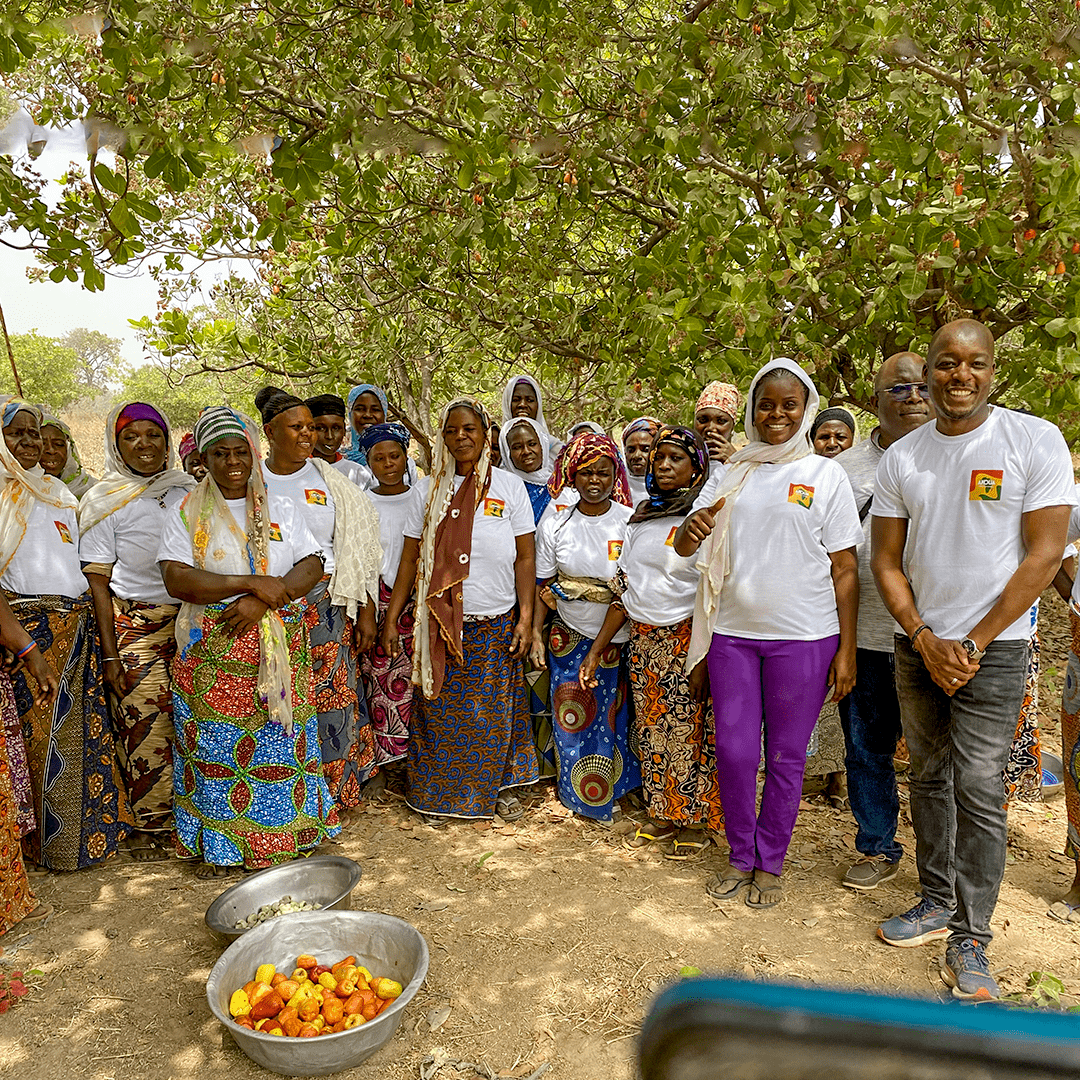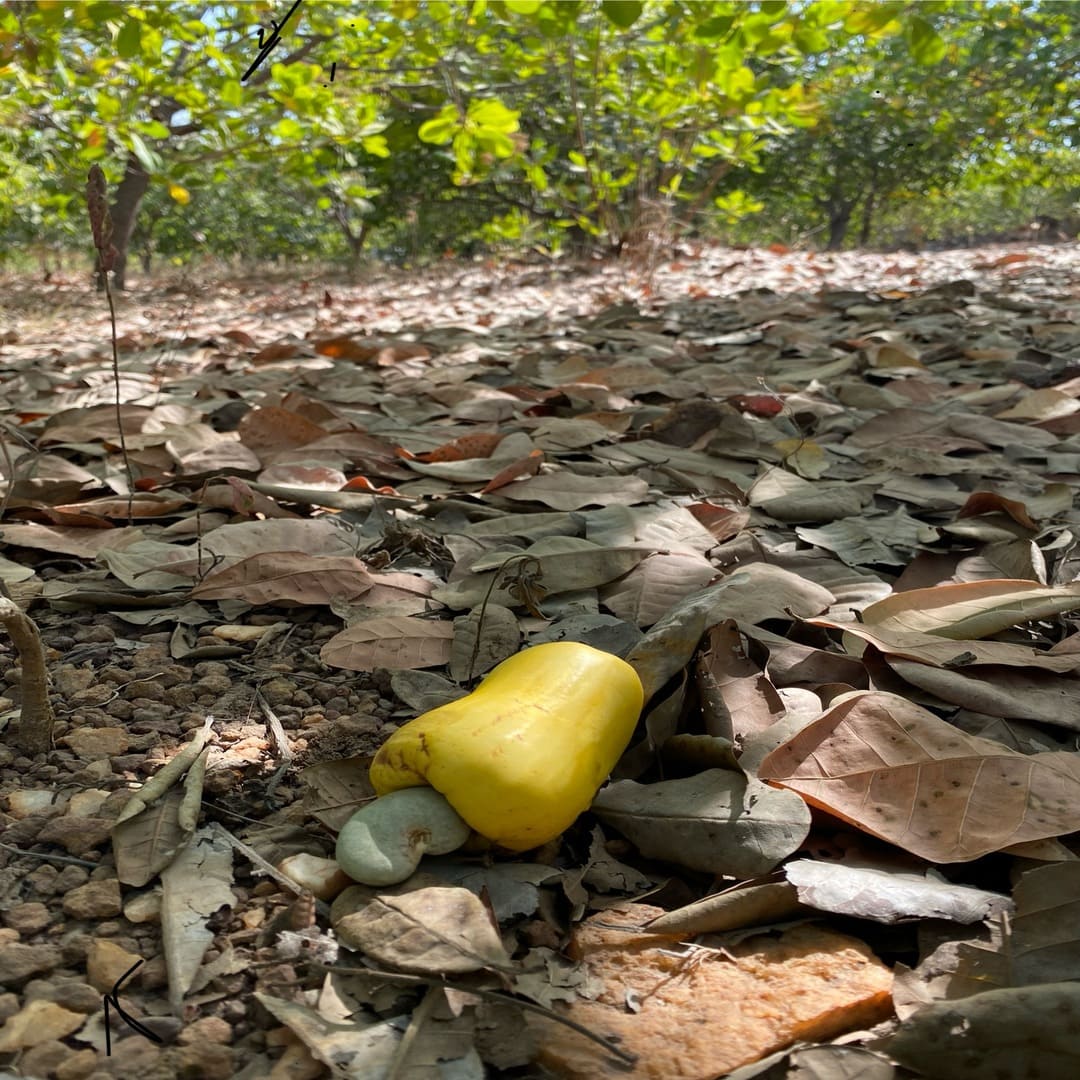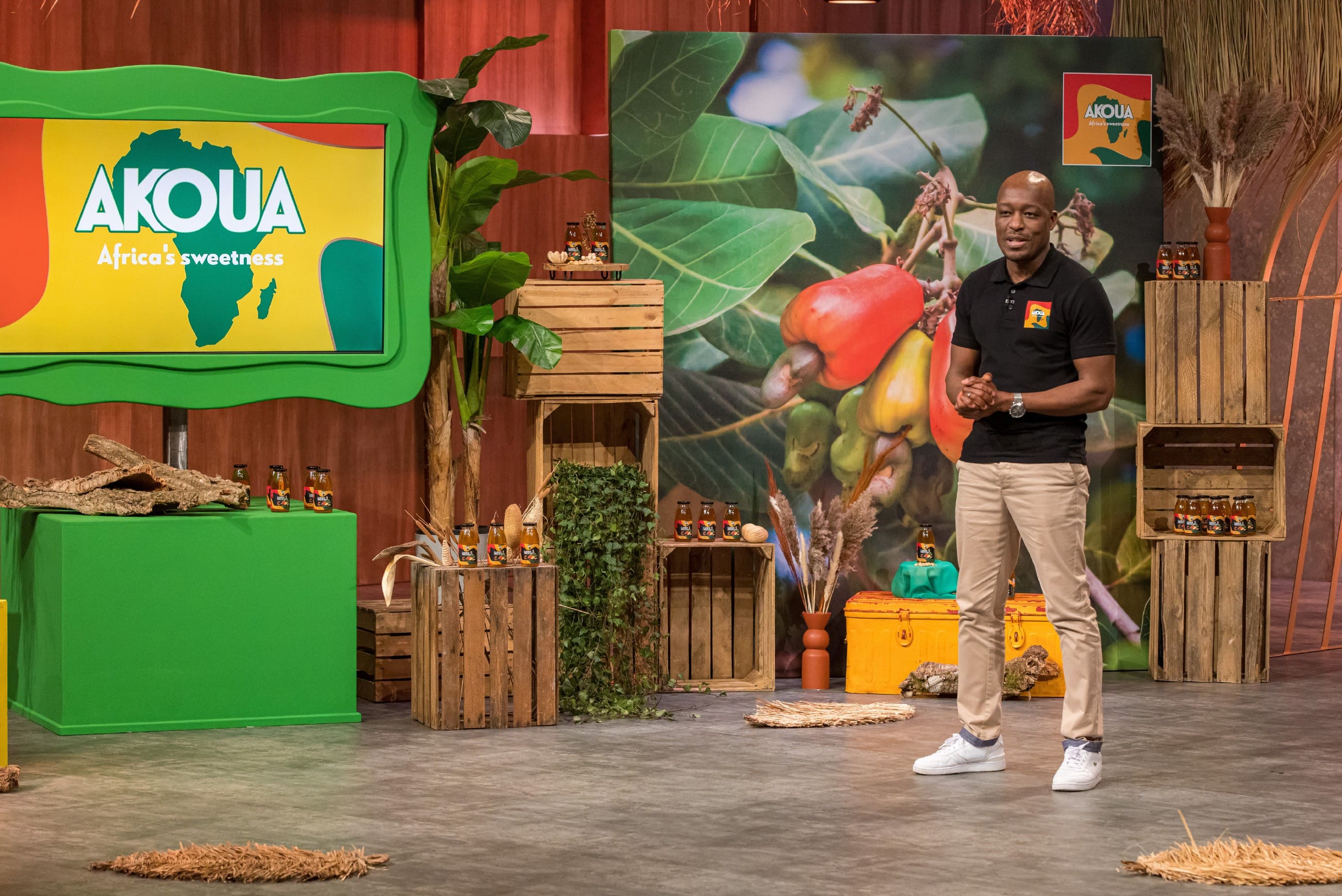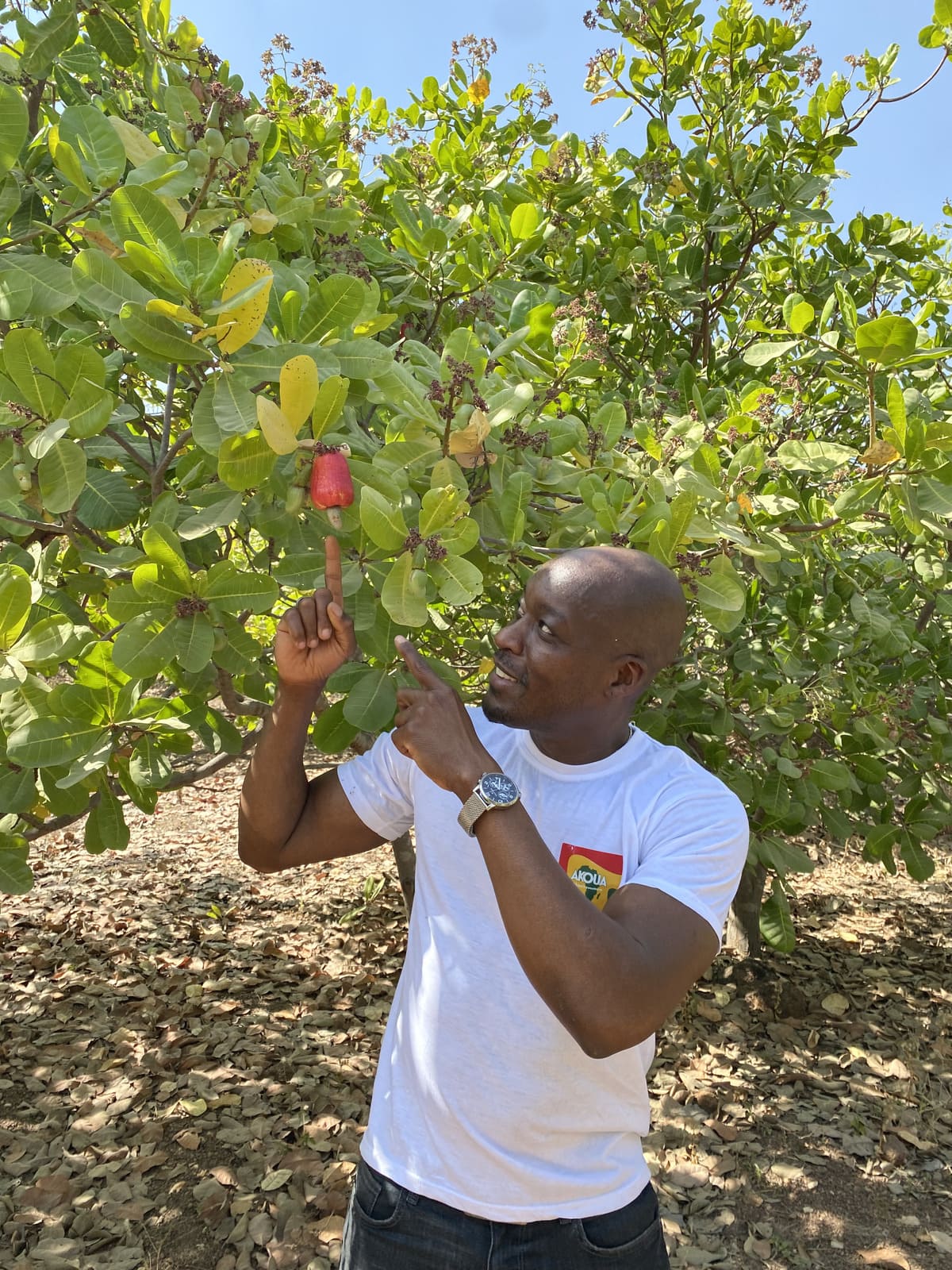
Due to their poor storage properties, cashew apples must be processed quickly and directly at the harvest location. This is also the reason why almost no one in this country knows this fruit and you cannot buy it as fresh fruit in Europe.
However, there is a lack of opportunities and infrastructure locally to process the cashew apples. Therefore, they are thrown away instead of being recycled. With our partners in Benin (West Africa), we preserve the juice obtained locally from cashew apples, import it to Europe and thus give it the added value that it deserves due to its ingredients.
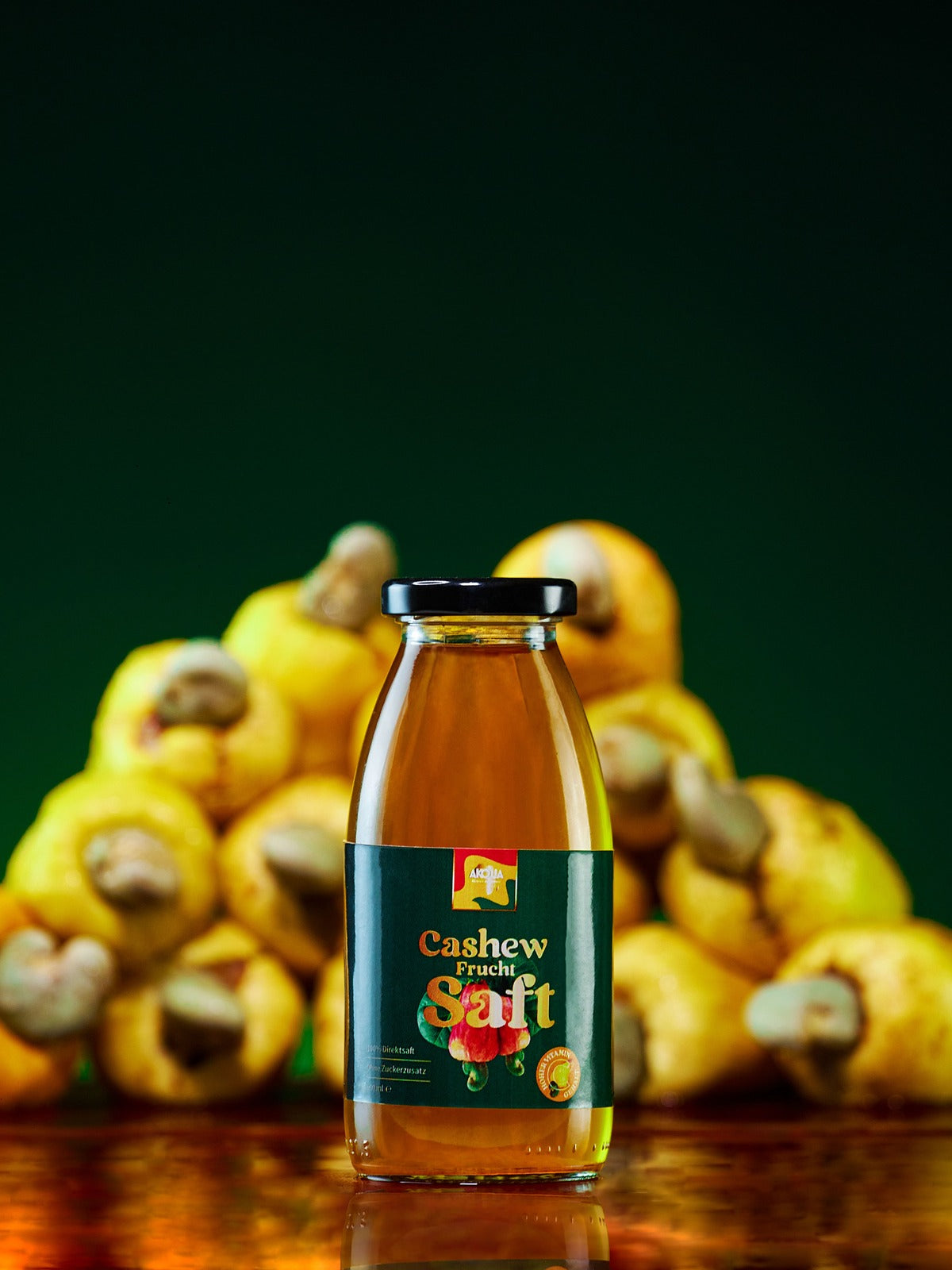
The determination of vitamin C in a sample of our cashew juice at GFL (Society for Food Research mbH) revealed a vitamin C content of 168 mg per 100 ml of juice and corresponds to 210% of the reference amount for the daily intake of vitamin C for an adult.
In comparison, it contains 5 times more vitamin C than oranges , plus many other vitamins and minerals. The demand for cashew nuts increases year after year, but unfortunately the cashew apples remain unprocessed and unused.
Our product range includes cashew juice , cashew juice concentrate , dried cashew fruits and fine powder from carefully selected cashew apples.
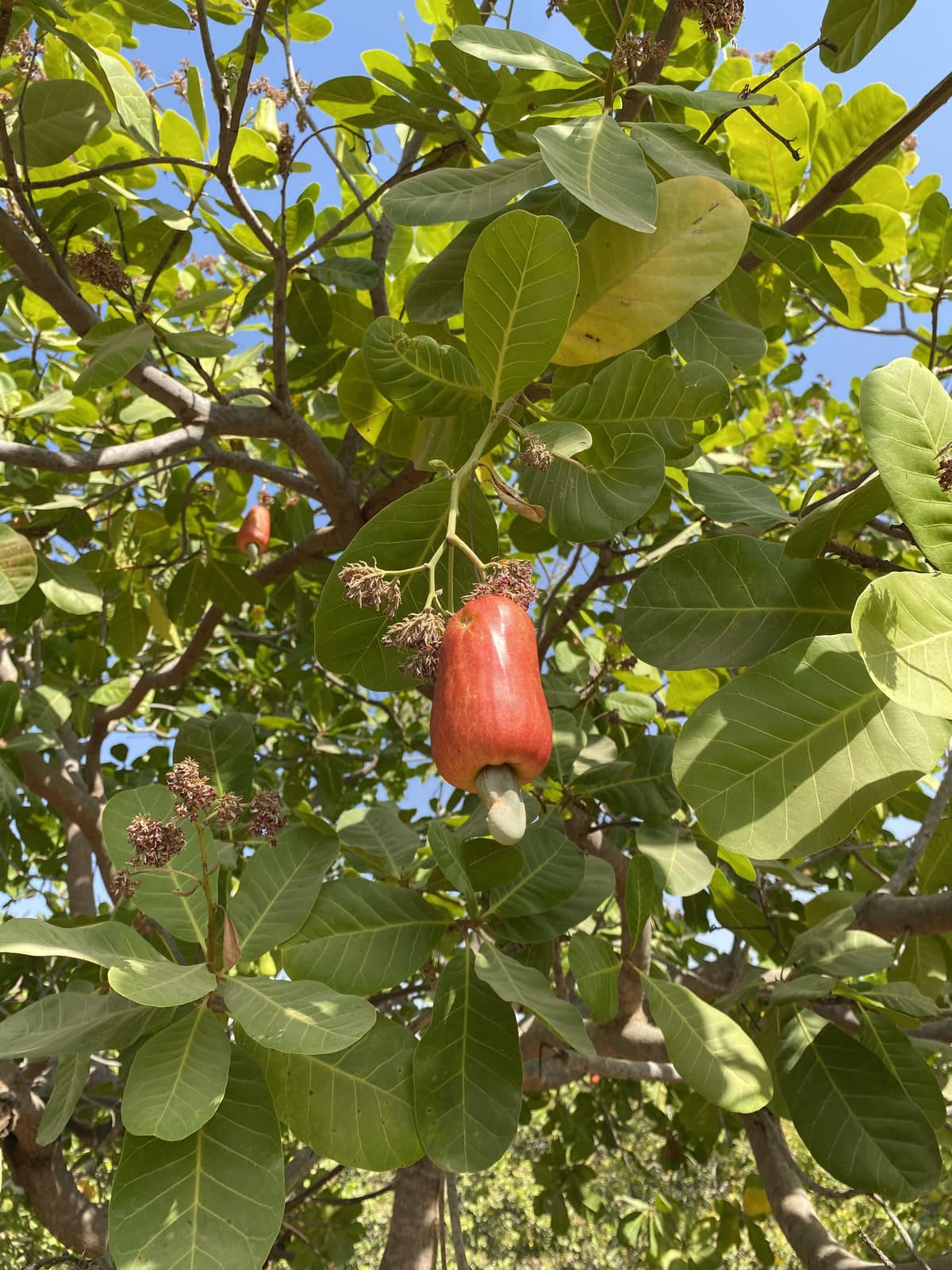
Did you know that for just 1kg of processed cashews, 10kg of cashew apples end up in the trash?
This shocking fact shows how urgently we need to act to reduce waste.
In Benin alone, around 2 million tons of unprocessed, unused cashew apples are produced every year. Imagine how much potential there is for sustainable use!
These facts are particularly critical in a world where the importance of food continues to increase. It is time to take responsibility and find sustainable solutions.
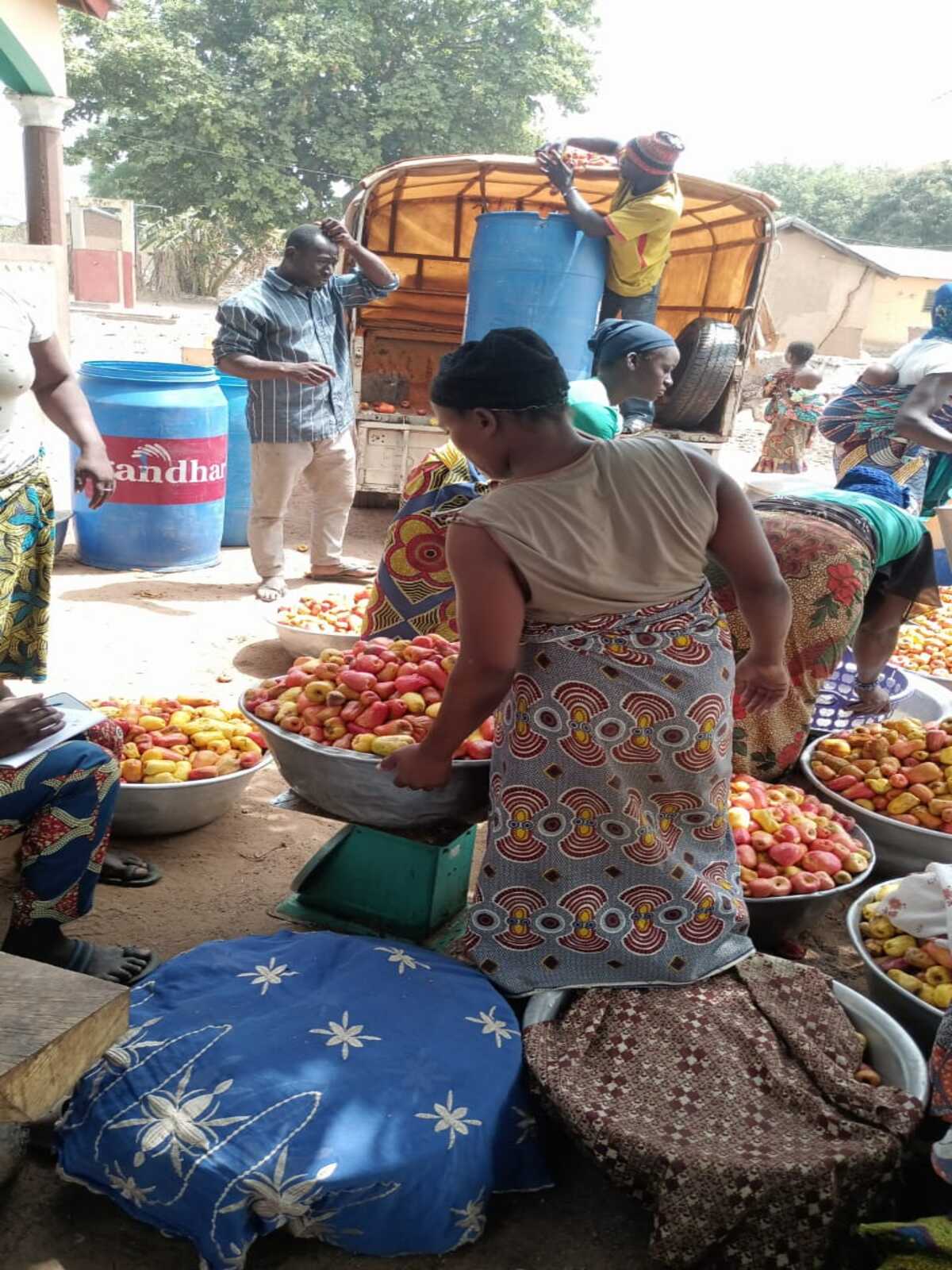
The majority of the cashews picked are not processed locally, but are exported abroad and processed there into the roasted cashews we know. Extracting the juice from cashew apples locally will create more jobs in the long term.
The farmers who pick the cashews have so far earned little money because only part of the cashews, namely the kernel, can be sold. The additional processing of the cashew apples will increase your profit by approximately 30% . So more money for a product that already exists but has hardly or not been used at all.
Due to their poor storage properties, cashew apples must be processed quickly and directly at the harvest location. This is also the reason why almost no one in this country knows this fruit and you cannot buy it as fresh fruit in Europe.
However, there is a lack of opportunities and infrastructure locally to process the cashew apples. Therefore, they are thrown away instead of being recycled. With our partners in Benin (West Africa), we preserve the juice obtained locally from cashew apples, import it to Europe and thus give it the added value that it deserves due to its ingredients.
The determination of vitamin C in a sample of our cashew juice at GFL (Society for Food Research mbH) revealed a vitamin C content of 168 mg per 100 ml of juice and corresponds to 210% of the reference amount for the daily intake of vitamin C for an adult.
In comparison, it contains 5 times more vitamin C than oranges , plus many other vitamins and minerals. The demand for cashew nuts increases year after year, but unfortunately the cashew apples remain unprocessed and unused.
Our product range includes cashew juice , cashew juice concentrate , dried cashew fruits and fine powder from carefully selected cashew apples.
Did you know that for just 1kg of processed cashews, 10kg of cashew apples end up in the trash?
This shocking fact shows how urgently we need to act to reduce waste.
In Benin alone, around 2 million tons of unprocessed, unused cashew apples are produced every year. Imagine how much potential there is for sustainable use!
These facts are particularly critical in a world where the importance of food continues to increase. It is time to take responsibility and find sustainable solutions.
The majority of the cashews picked are not processed locally, but are exported abroad and processed there into the roasted cashews we know. Extracting the juice from cashew apples locally will create more jobs in the long term.
The farmers who pick the cashews have so far earned little money because only part of the cashews, namely the kernel, can be sold. The additional processing of the cashew apples will increase your profit by approximately 30% . So more money for a product that already exists but has hardly or not been used at all.






2021: The idea
It all started in 2021 when I once again held a can of cashews in my hand. I eat these kernels so often that my daughter said to me, "Dad, you're addicted to cashews." Since I come from Benin and knew the cashew fruit as a child and had even eaten it, I asked myself: What the hell happens to the cashew fruit after the kernel is removed?
My research to answer this question revealed that the fruits are simply thrown away.
2022: Contact with Thérèse and crowdfunding campaign
Together with my co-founder Thérèse in Benin, we decided to make cashew apple juice known worldwide. Since we lacked the financial resources, we started a crowdfunding campaign on Startnext, which was successfully completed thanks to many supporters.
2023: Television appearance in the program “The Lions’ Den”
On October 20, 2022, I received a message from the TV station VOX, which recognized the potential of our idea for processing cashew apples into cashew juice. They invited us to take part in the casting – a crucial step for our startup.
The casting process continued for months until the selection for the 14th season was finally made. And indeed, Akoua was there and would now experience the VOX filming team up close.
August 28th, 2023 was a special day for me because our mission would be broadcast to millions of viewers on VOX and RTL+ .
2024: Product expansion, cashew fruit lemonade and concentrate
Together with a respected German company, we have responded to your wishes and developed a new, refreshing cashew fruit lemonade .
Our cashew juice concentrate, on the other hand, gives sweet dishes and desserts a distinctive touch and ensures unique taste experiences.
2025: It continues
Let yourself be surprised ...
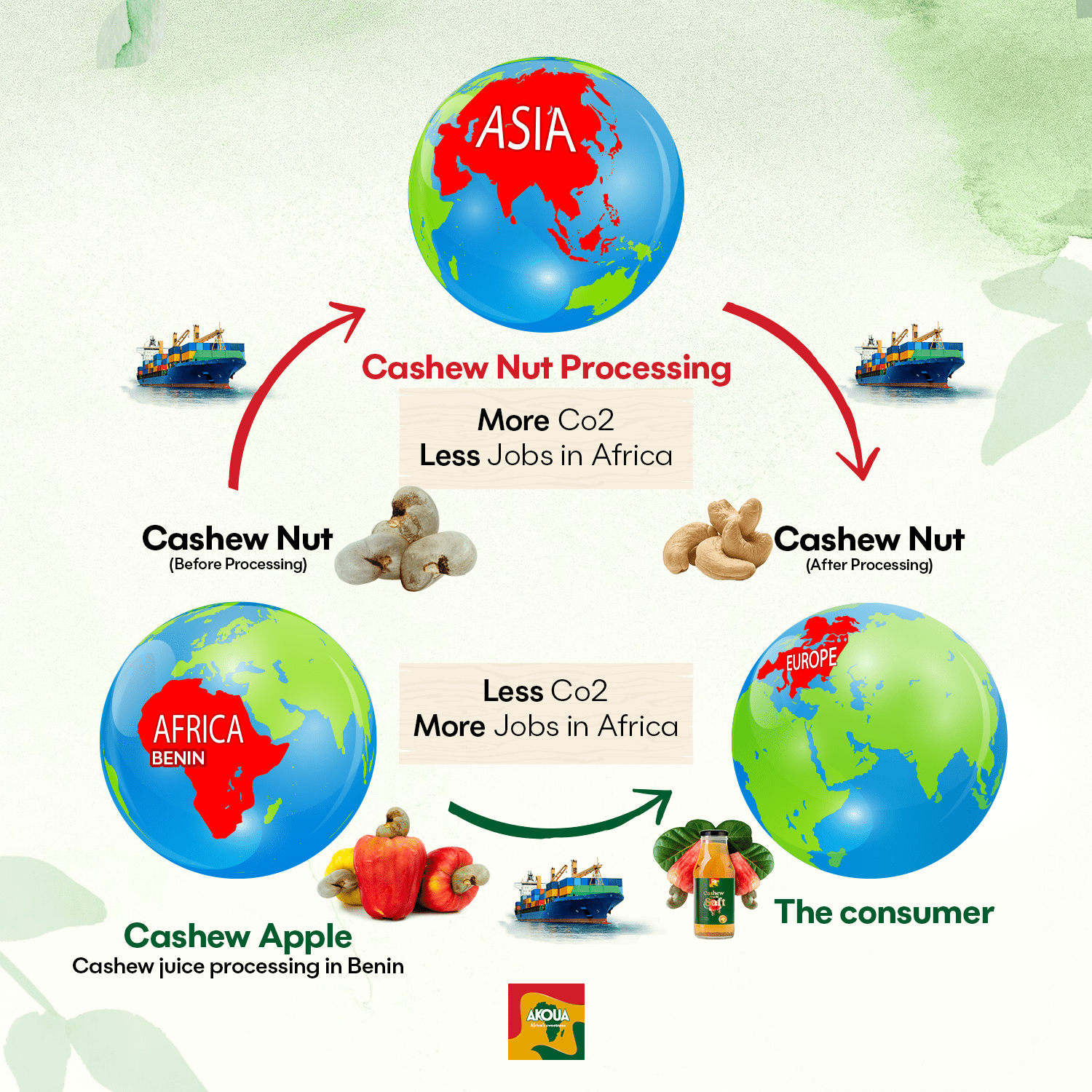
A significant proportion of the cashews consumed in Europe come from cultivation in Africa. However, the journey of these kernels is extremely complex: African countries often do not have the necessary processing technology, which is why the harvest is shipped to Vietnam, India or Brazil for further processing. Ultimately, the finished cores are returned to Europe.
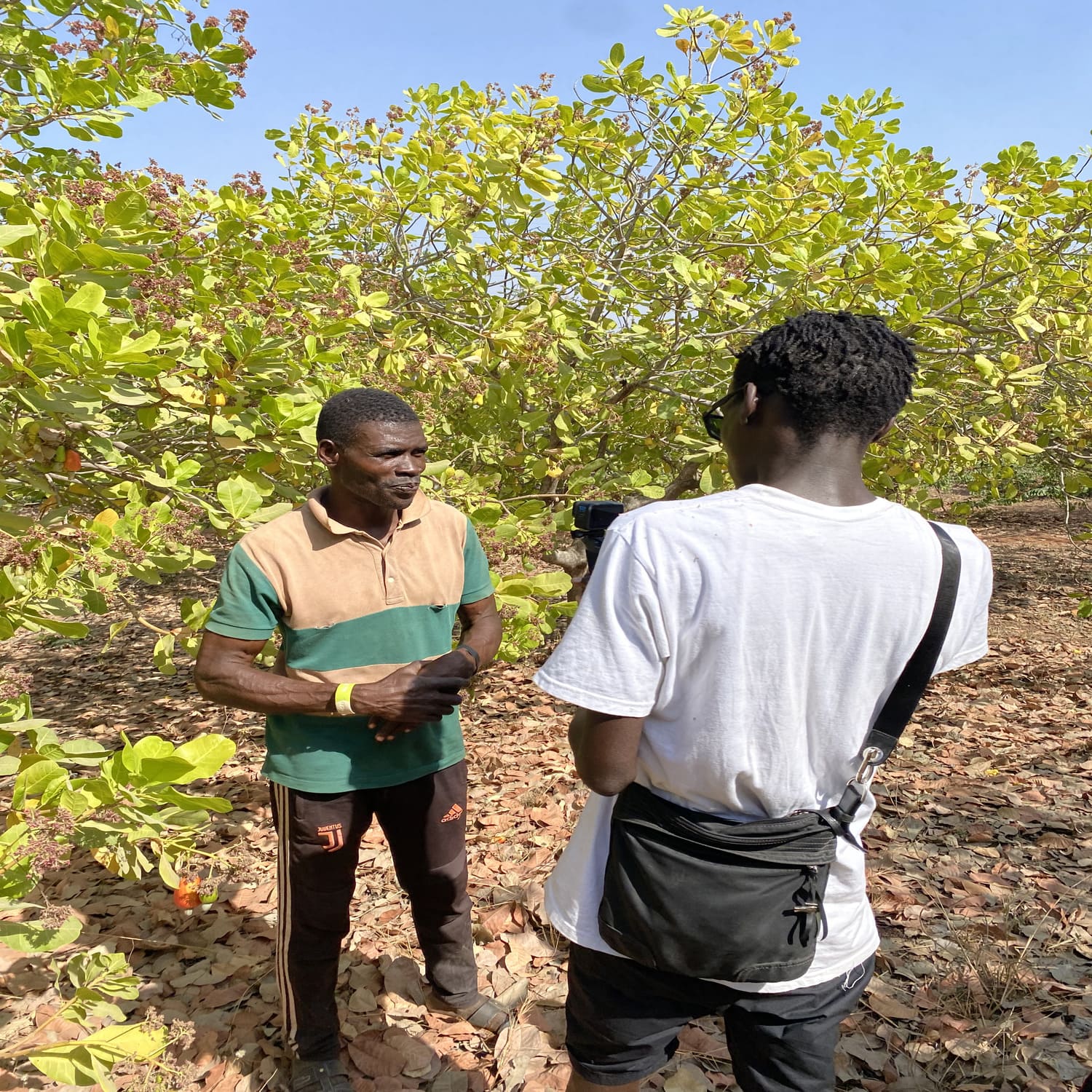
The problem is that the export price of processed cashews from India to Europe in 2018 was 250% higher than the revenue earned by African farmers like Yarou Arouna (pictured). This trade route often benefits processors and traders, but not the original farmers.
Demand for cashews continues to rise, but African farmers are not adequately benefiting from them. There is also a massive shortage of jobs in a continent with the world's youngest population. 40% of the African population is under 15 years old.

The shocking news of overloaded ships carrying young Africans looking for jobs and a better life in Europe is always sad. Despite much discussion, little is being done to address the problem at its root.
This reality is not lost on the ministries in my home country of Benin, which is why they have pledged their support to us.
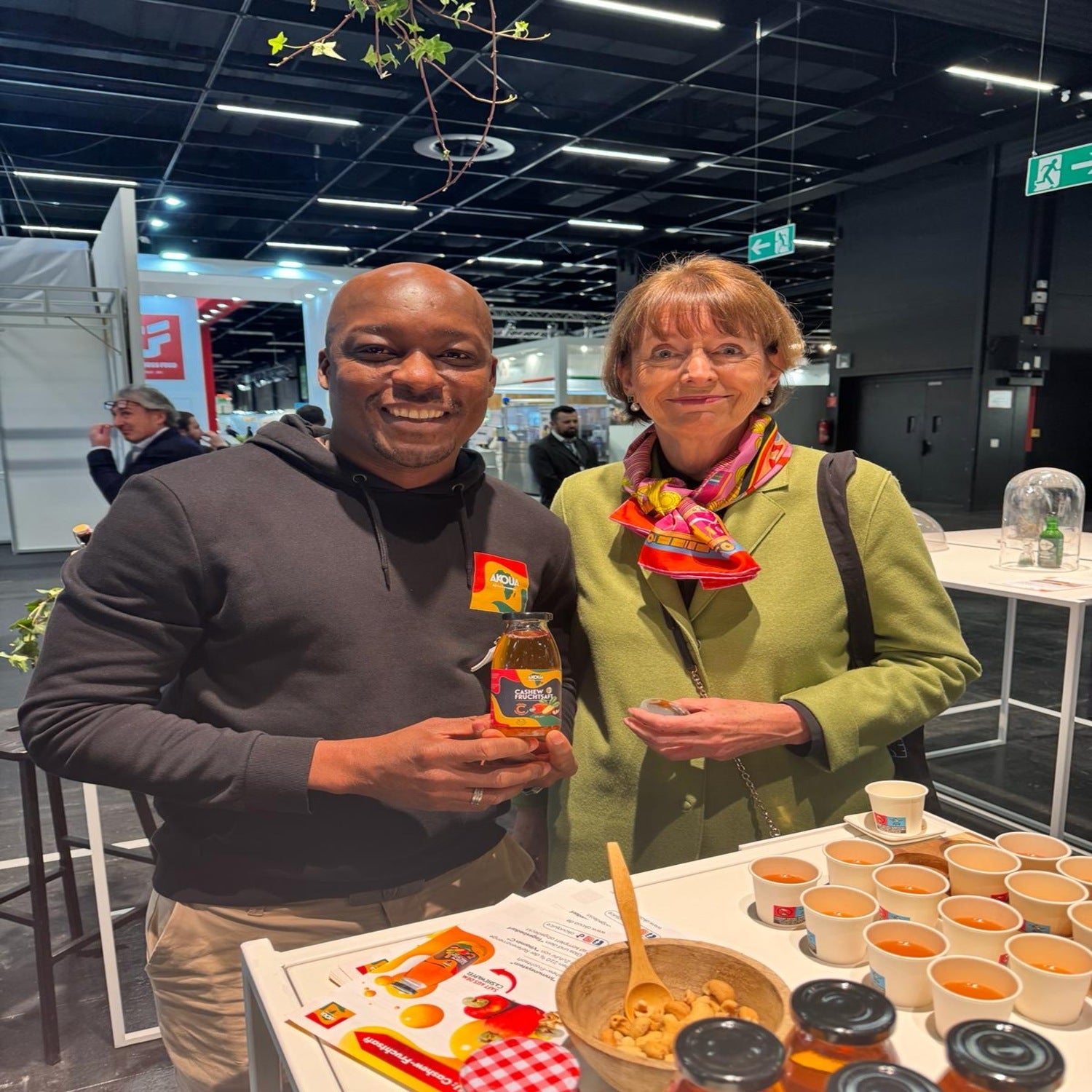
The numerous positive feedback about our products and our contribution to sustainability and social change show me that we are on the right track. One of these wonderful responses even came from the mayor of the city of Cologne, Henriette Reker, herself after she tried our cashew juice.


